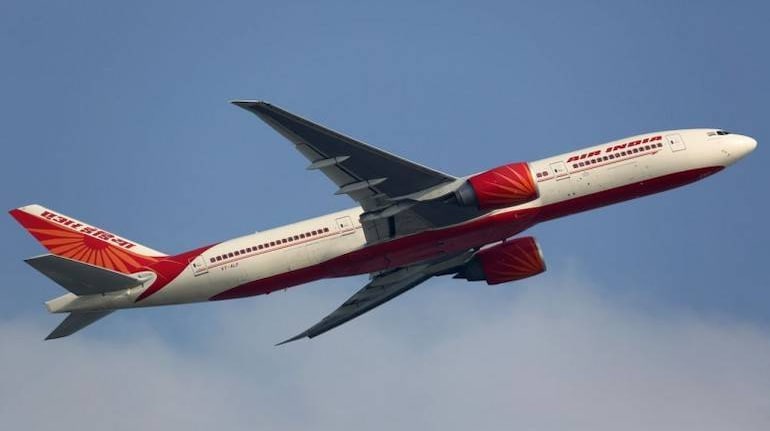



The central government expects to privatize national carrier Air India at a much lower valuation than what it was hoping for pre-pandemic.
Senior government officials in the Civil Aviation Ministry and the Finance Ministry say that the virus is expected to keep dragging the revenues and profits of the airline and reduce the valuation of some of its prized assets like landing slots and travel routes.
Even then, the intent is to go ahead with the sale, as the decision makers in the government do not believe any more taxpayer money should be pumped into the ailing airline.
“We expect bids coming in for Air India to be lower than earlier expected, especially due to the second wave of the virus that has started in the country. Valuations of Air India’s fleet, landing slots, and international and domestic travel routes may also be slightly lower,” a government source told Moneycontrol.
The source added that due to restrictions in air travel currently imposed both domestically and on international routes, Air India’s landing slots and travel routes, the airline’s two biggest assets apart from its fleet, may fetch lower valuations.
“When the divestment plans for 2021-22 were being discussed before the pre-budget, it was discussed whether the planned privatization of Air India should be delayed by a year or so, to let the aviation industry recover,” said a second official.
However, it was decided to go ahead with the privatization since there was no appetite to further fund Air India and since there was no clarity on when the aviation market would actually recover.
“The question facing us was simple. If we put in ‘x’ amount of money into the airline over the next two years, will the sale price then be the current valuation plus ‘x’? The priority now is to sell at the best possible valuation in the current environment,” the official said.
The government was earlier expected to fetch around Rs 15,000 crore from the sale of Air India, it's subsidiary Air India Express and Air India Sats Airport Services Private Ltd, by selling its 100 percent equity in the airline.
Air India caters to 103 both domestically and internationally and along with Air India Express has around 146 aircraft. The airline has not made money since the merger of Air India and Indian Airlines in 2007.
In order to attract bids, the government has earlier transferred Rs 29,500 crore of Air India’s debt to a special purpose vehicle – Air India Asset Holding, with real estate assets. With this, Air India is left with Rs 23,000 crore of debt.
International and domestic travels are expected to remain muted when compared to 2019-20 (Apr-Mar) in terms of passenger load factor for the next two years, due to the adoption of online meetings and work from home during the pandemic, localized lockdown across India and parts of the world and scientism of customers to travel to avoid risk of infection, market experts and analysts said.
Air India also likely incurred losses of around Rs 9,779 crore in 2020-21 (Apr-Mar), according to provisional figures shared by the Centre in Lok Sabha in March.
“The COVID-19 pandemic, along with its related impact on the aviation industry, has worsened the financial position of airlines in the country, including Air India,” Minister of State for Civil Aviation Hardeep Singh Puri had told the Parliament.
Last month Puri had said that he expects financial bids for debt-laden Air India to come in within 64 days, following which a new owner for the airline will be chosen.
The Minister had added that this time around the government had no choice but to privatize or close down the airline as it is running in losses. The airline has run up a debt of around Rs 60,000 crore, Puri said.
The lower valuation of Air India is also in line with valuations of other domestic airlines like Jet Airways India Ltd, and InterGlobe Aviation owned IndiGo falling in the past year, due to lower revenues and profitability.
Shares of Jet Air and InterGlobe Aviation has fallen 17.3% and 9.5% respectively in the last year.
Furthermore, the airline’s fleet may also fetch lower valuation due to the decline in prices of airplane prices due to the outbreak of the COVID-19 pandemic.
According to Fitch Ratings, the market value of 10-year-old wide-body aircraft like Boeing 777 has declined by 27 percent while that of a 10-year-old narrow body like Boeing 737 and Airbus A320 aircraft has come down by 16 percent in the past year.
Discover the latest Business News, Sensex, and Nifty updates. Obtain Personal Finance insights, tax queries, and expert opinions on Moneycontrol or download the Moneycontrol App to stay updated!
Find the best of Al News in one place, specially curated for you every weekend.
Stay on top of the latest tech trends and biggest startup news.